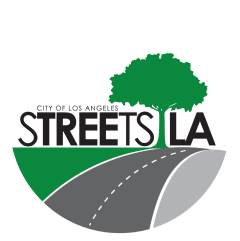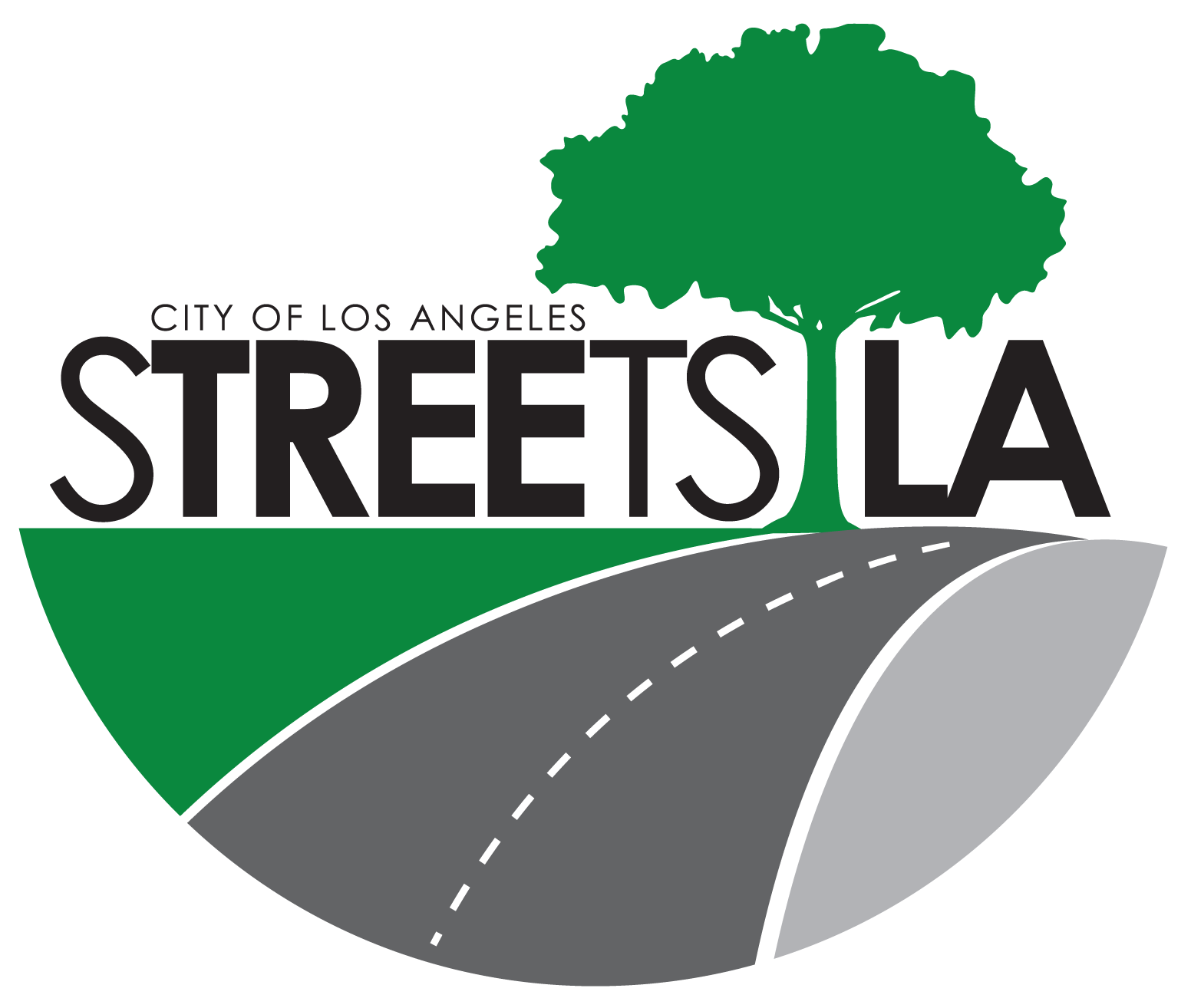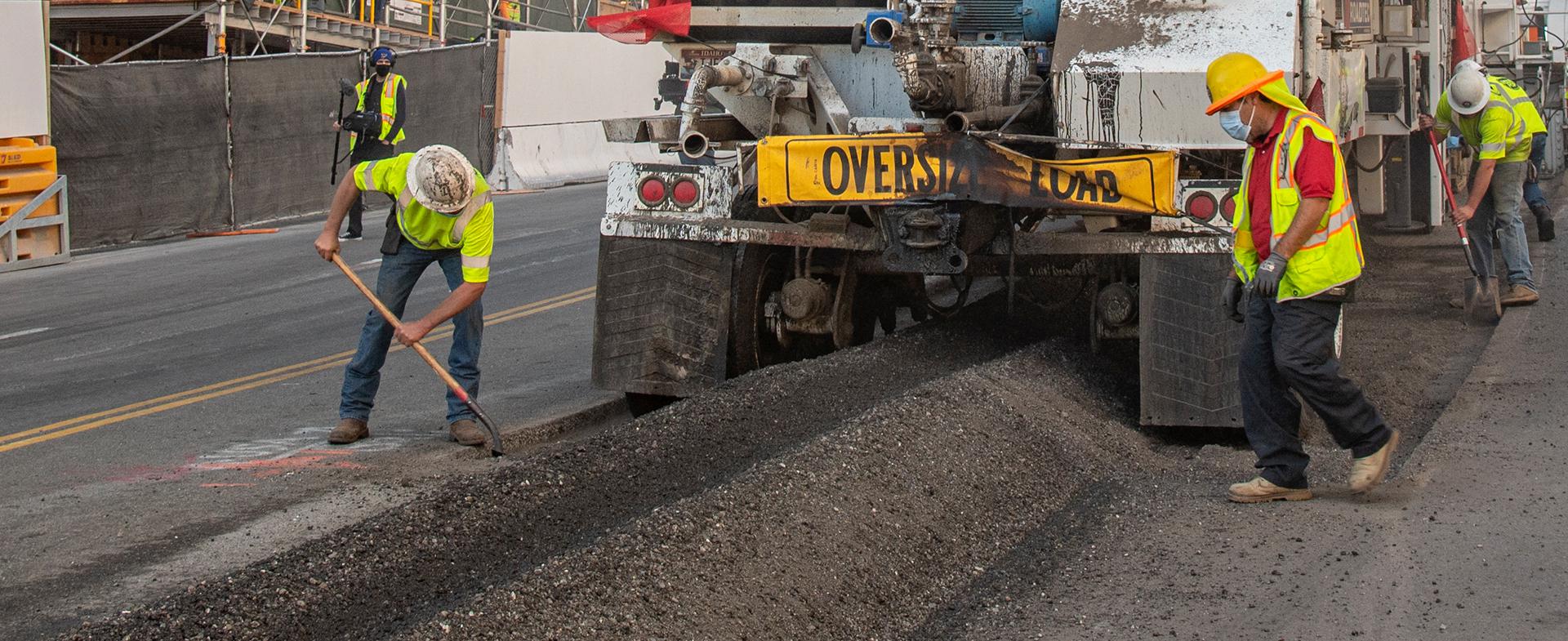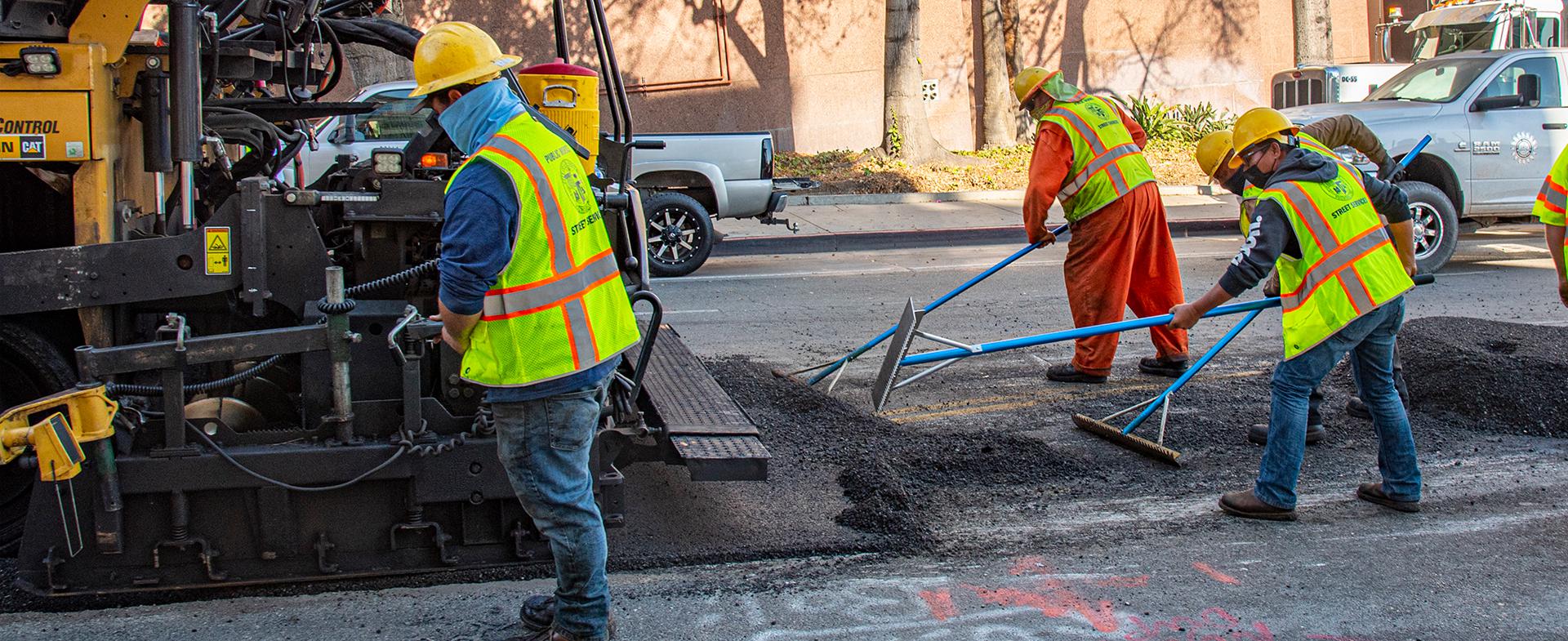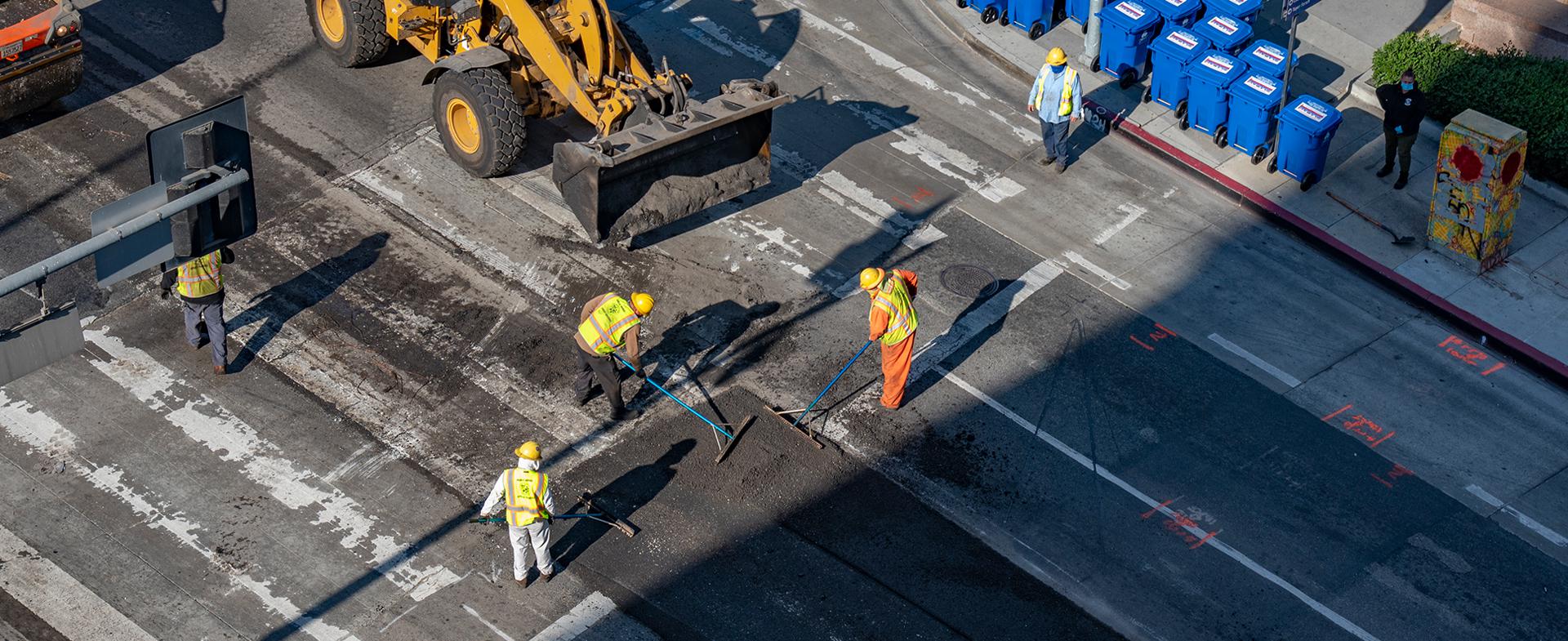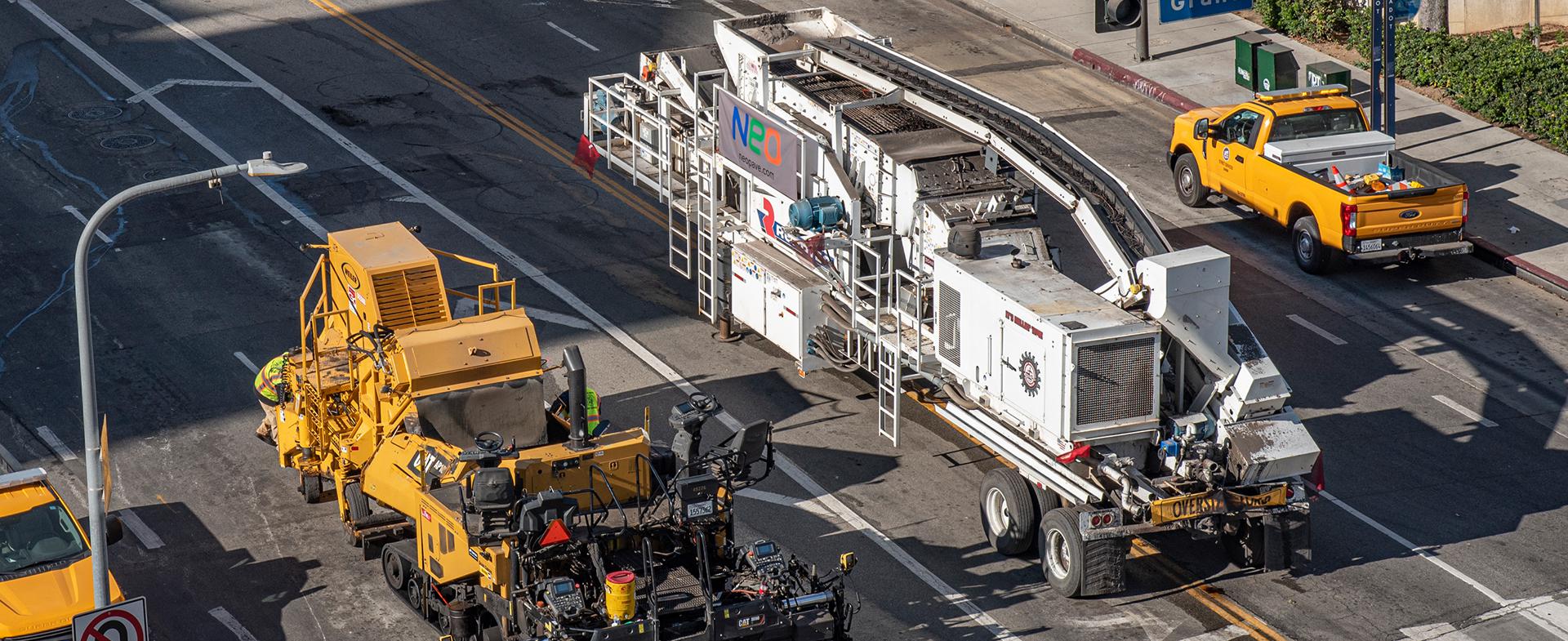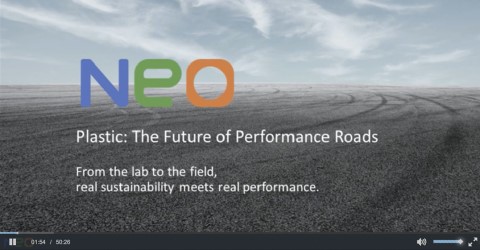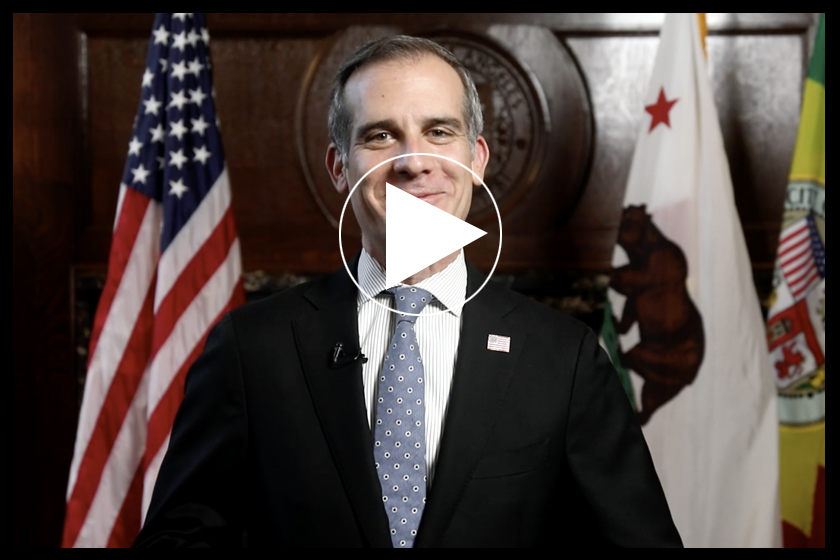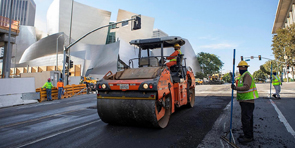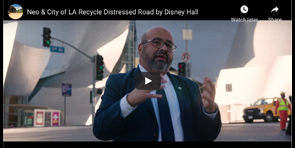Sustainability project supports goals of LA’s Green New Deal goals by replacing petroleum with recycled plastic to create a super asphalt
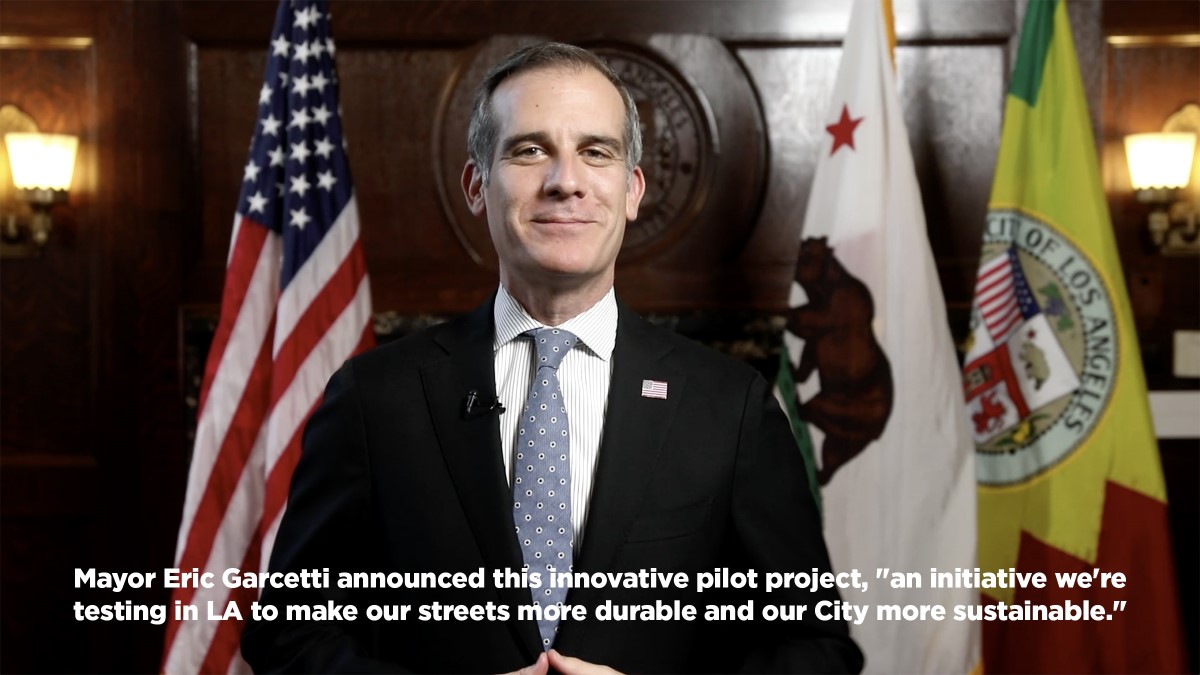
Mayor Eric Garcetti and Public Works officials announced the launch of a new sustainability pilot project in which a portion of 1st Street between Grand Avenue and Hope Street in downtown Los Angeles was resurfaced with recycled plastic asphalt. The project advances the goals of LA’s Green New Deal, to combat climate change and assert the City's environmental leadership.
Led by StreetsLA and working with TechniSoil Industrial, this application of recycled plastic asphalt is the first of its kind on a major city street and further proof Los Angeles stays on the cutting edge of innovative, green technology. Recycled plastic asphalt made with TechniSoil Industrial’s Neo® binder infused with recycled PET plastic from water bottles has the potential to reduce the use of petroleum in asphalt. Additional benefits include reduced energy-input, fewer truck trips, zero use of virgin aggregate, increased recycling of existing roadway and the associated reductions of greenhouse gas emissions. Lab tests indicate the road it produces may be five-to-six times the strength of a traditional asphalt road and will last two-to-three times longer, generating 50 percent life-cycle savings for taxpayers.
“Los Angeles is where the world comes to test its best ideas -- where the latest innovations in sustainability find a proving ground, a laboratory, and a home built into the very fabric of our city,” said Mayor Eric Garcetti. “With this technology from Neo, we can move closer to our most ambitious climate goals, improve the way we deliver high-quality city services, and pave a path to a greener future.”
As part of the project, the City will evaluate the durability and performance of the product, under conditions of heavy vehicle weight use, where deep rutting and deformation of the roadway has resulted. Approximately 150,000 plastic water bottles could be reused per lane mile.
“As part of Mayor Garcetti’s LA’s New Green Deal, the Department of Public Works plays a leading role in the development of sustainability initiatives for the City,” said Board of Public Works Commissioner Teresa Villegas. “The recycled plastic asphalt project supports this leadership and how the department is supporting the City’s overall efforts in combating climate change.”
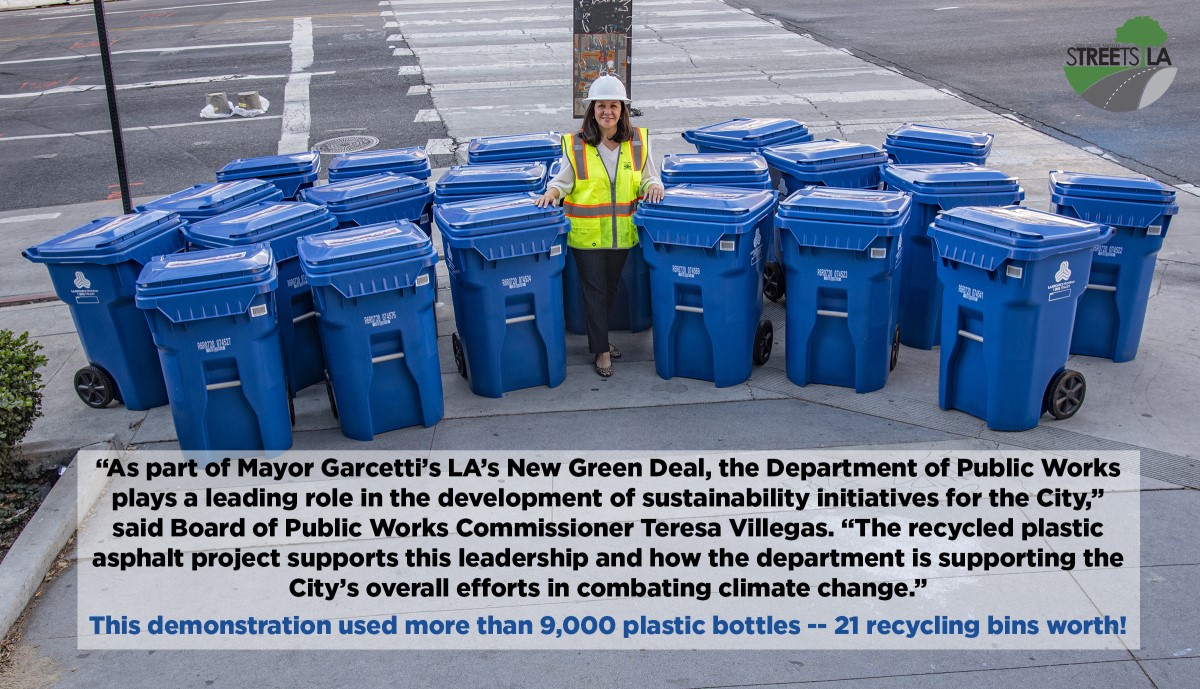
"Not only could this process divert plastic from our landfills," said Councilmember Paul Krekorian, author of the motion calling for the pilot project, "it has the opportunity to make our streets last longer. Initial tests showed the material to be significantly more durable than traditional asphalt, and streets can be available for travel in as little as 12 hours upon completion."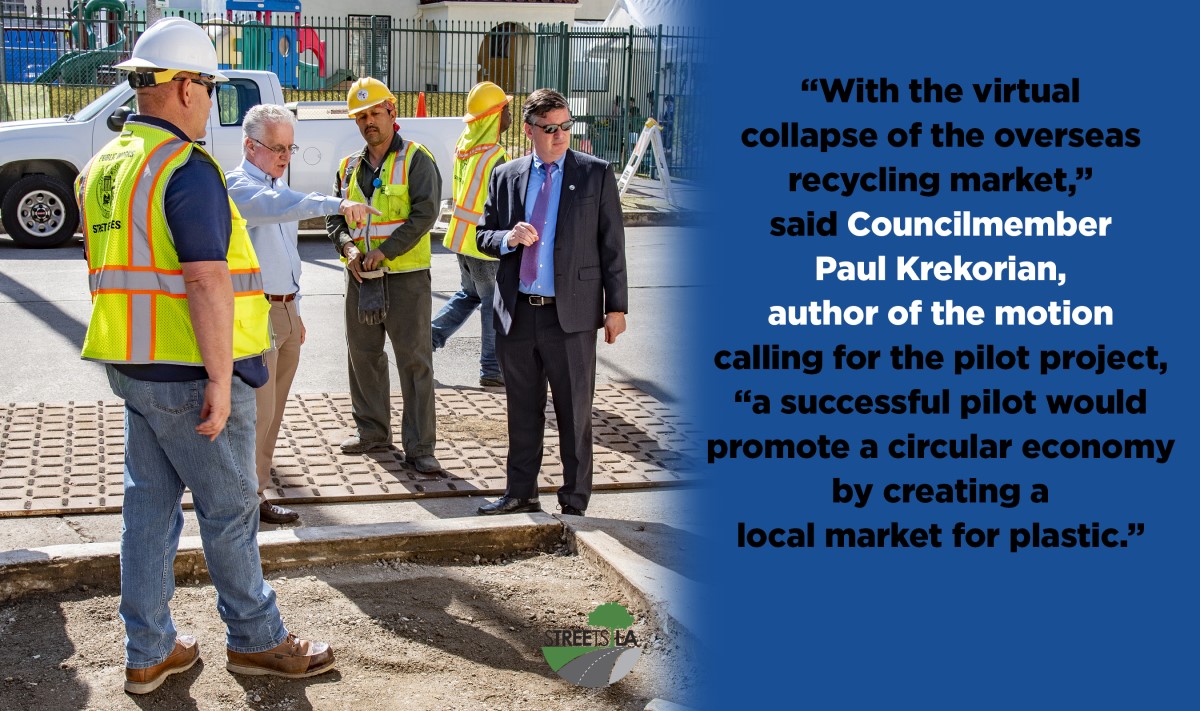
“This project is just one example of the innovation and integration, StreetsLA is pursuing to make our streets safe, mobile and sustainable,” said StreetsLA General Manager Adel Hagekhalil. “The City is the first to take this product out of the lab and put it into a public street. If this test performs the way we expect it to, it can open the doors to an entire local marketplace for recycling of waste plastics, with the extra benefits of reduced pollution and smoother rides on the streets of LA."
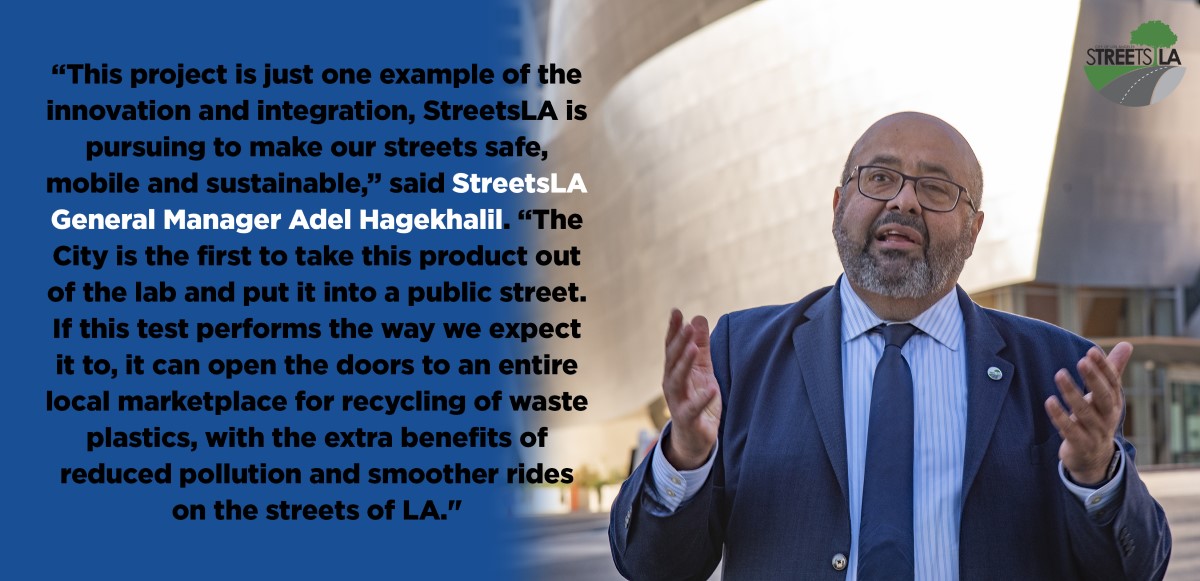
“I’m captivated by the idea that roads are one of the first downstream applications for recycled plastic that is bigger than the size of the plastic problem itself,” said Sean Weaver, founder and CEO of TechniSoil Industrial and inventor of Neo. “This launch in conjunction with StreetsLA shows us how we can reach a truly circular economy by diverting significant quantities of single-use plastic into long-term use solutions.”
Infrastructure Insider Web Event Series - Plastic: The future of performance roads
April 2021 - Join Sean Weaver, the Founder of Neo, and Keith Mozee, Assistant Director of StreetsLA, as they share about this groundbreaking technology, the results, and what it’s like to use Neo in the field. Webinar is pre-recorded and ready to play at any time, NOTE: actual video starts at 20 seconds in. Session 1 Webinar is free with registration.
Mayor Eric Garcetti
Los Angeles Mayor Eric Garcetti introduces the City's first recycled plastic asphalt pilot project... Click here to watch Video
LA Uses Recycled Plastic Bottles to Repave Downtown Street
December 17, 2020 - Imagine if all those plastic bottles you see littering the street were actually embedded into the road itself. That’s the concept behind an innovative new stretch of asphalt L.A.’s Bureau of Street Services... Read Article
StreetsLA and TechniSoil bring plastic asphalt to downtown Los Angeles
December 17, 2020 - The new paving process could keep up to 150,000 plastic bottles out of landfills per lane mile.... Click here for the article and video
